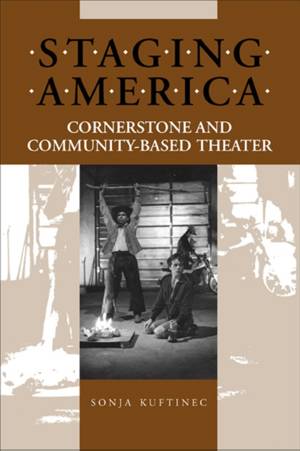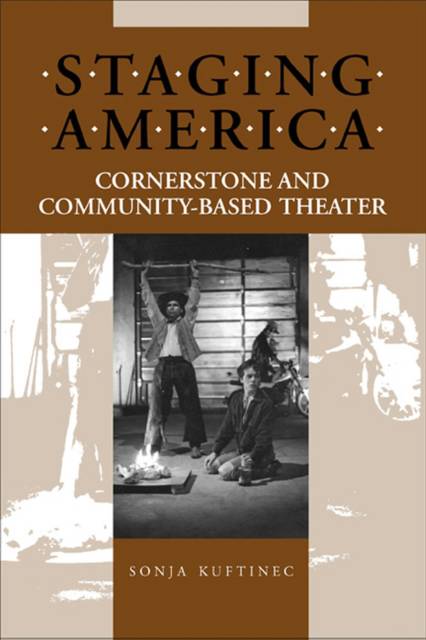
- Retrait gratuit dans votre magasin Club
- 7.000.000 titres dans notre catalogue
- Payer en toute sécurité
- Toujours un magasin près de chez vous
- Retrait gratuit dans votre magasin Club
- 7.000.0000 titres dans notre catalogue
- Payer en toute sécurité
- Toujours un magasin près de chez vous
Description
This captivating studymaps a history and theory of community-based theater in the United States through the Cornerstone Theater Company. Detailing how the performance-making process contributes to an ongoing negotiation of American identity, Sonja Kuftinec investigates community-based theater to trace the historical affiliations of the form and critically examines how community-based theater both enables community and challenges the very notion of "community" as a stable site.
The process of making and unmaking community is vividly illuminated in the work of the Cornerstone Theater Company, a Los Angeles-based ensemble founded in 1986. From 1986 to 1991, Cornerstone toured nationwide, working mainly with rural towns to create adaptations of classical texts. A Wild West musical Hamlet was performed with residents of Marmarth, North Dakota (population 190), and The House on Walker River, an adaptation of the Oresteia trilogy, was developed with a Native American reservation in Nevada. Since 1991, Cornerstone has performed with urban communities, developing original shows and adaptations of Western and non-Western texts incorporating local histories and community players. These performances rearticulate distinctions among various urban group and between amateur and professional theater.
While Cornerstone's contemporary work can be contextualized within a historical tradition of grassroots performance, it also complicates this tradition, suggesting that identity may be more dynamic than rooted. By using Cornerstone as a case study, Kuftinec's analysis of community-based theater's impact upon rural, urban, and professional sites across the United States proposes that "community" and "America" are vital terms of negotiation rather than fixed entities.
Spécifications
Parties prenantes
- Auteur(s) :
- Editeur:
Contenu
- Nombre de pages :
- 282
- Langue:
- Anglais
- Collection :
Caractéristiques
- EAN:
- 9780809324972
- Date de parution :
- 22-04-05
- Format:
- Livre broché
- Format numérique:
- Trade paperback (VS)
- Dimensions :
- 155 mm x 229 mm
- Poids :
- 385 g

Les avis
Nous publions uniquement les avis qui respectent les conditions requises. Consultez nos conditions pour les avis.






